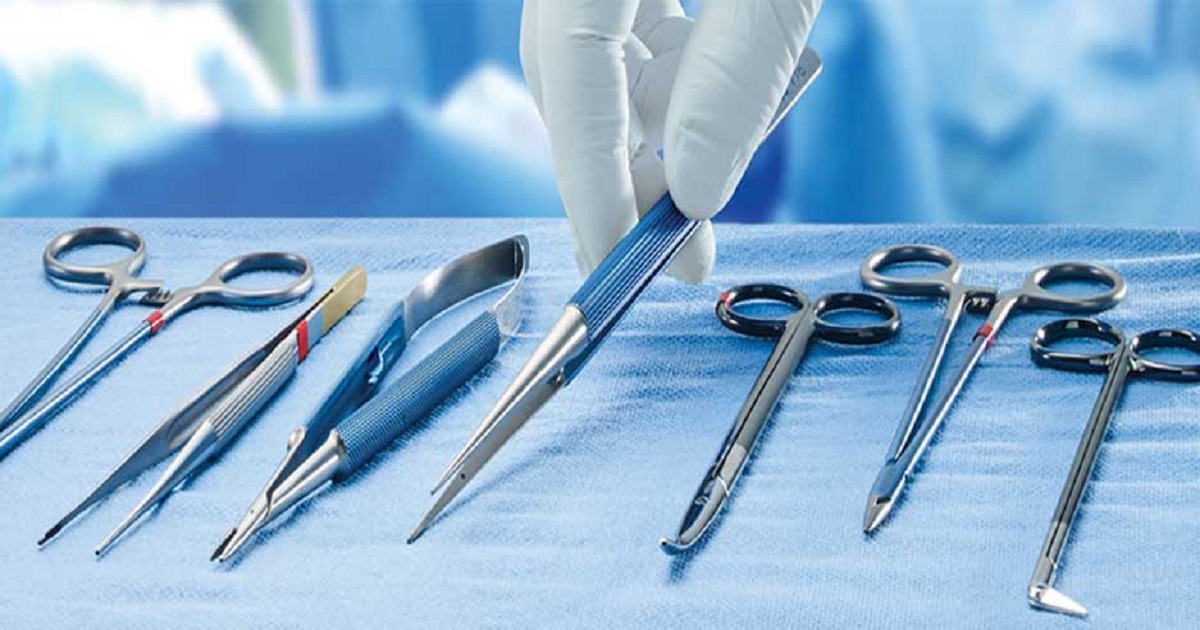Plastic surgery instrument manufacturing in Pakistan is a burgeoning industry with significant implications for both the local and global markets. The importance of quality in these instruments cannot be overstated, as they play a crucial role in the success and safety of plastic surgery procedures. This article delves into the various concerns and aspects surrounding the Plastic Surgery Instrument Manufacturers in Pakistan, providing a comprehensive overview of the industry’s landscape, challenges, and future prospects.
The Growing Demand for Plastic Surgery Instruments
Plastic surgery has seen a significant rise in popularity over the past few decades, with procedures ranging from reconstructive surgeries to aesthetic enhancements. This surge in demand has, in turn, increased the need for high-quality surgical instruments. Pakistan has emerged as a key player in this global market, supplying a substantial portion of the instruments used worldwide.
Manufacturing Landscape in Pakistan
Pakistan’s manufacturing landscape for plastic surgery instruments is primarily concentrated in regions such as Sialkot, known for its expertise in producing surgical instruments. Several major manufacturers dominate the industry, each contributing to the country’s reputation as a reliable source of medical tools.
Quality Control Issues
Quality control is a critical concern in the manufacturing of plastic surgery instruments. Common challenges include maintaining consistency in production, ensuring the sterility of instruments, and meeting international standards. Substandard instruments can lead to severe complications during surgeries, making it imperative for manufacturers to adopt rigorous quality control measures.
Regulatory Environment
The regulatory environment in Pakistan plays a crucial role in shaping the manufacturing industry. Regulatory bodies such as the Pakistan Medical and Dental Council (PMDC) and the Drug Regulatory Authority of Pakistan (DRAP) oversee compliance and ensure that manufacturers adhere to the necessary standards. Compliance requirements include rigorous testing, certification, and periodic inspections to maintain the quality and safety of the instruments produced.
Technological Advancements
Adoption of new technologies in manufacturing has brought significant benefits to the plastic surgery instrument industry. Technological advancements such as precision engineering, automated production lines, and advanced sterilization techniques have improved the quality and efficiency of instrument production.
Skilled Workforce and Training
A skilled workforce is essential for the successful manufacturing of high-quality plastic surgery instruments. In Pakistan, the availability of skilled labor is a mixed scenario. While there are many experienced craftsmen, there is a need for continuous training and development to keep up with technological advancements and international standards.
Supply Chain Challenges
Supply chain challenges pose another significant concern for manufacturers. Issues such as raw material sourcing, logistics, and distribution can impact the production and delivery of instruments. Raw material sourcing is particularly critical, as the quality of materials directly affects the final product. Additionally, efficient logistics and distribution networks are essential to ensure timely delivery to international markets.
Ethical Concerns
Ethical manufacturing practices are increasingly becoming a focus in the industry. Ensuring fair labor practices, safe working conditions, and environmental responsibility are essential components of ethical manufacturing. Addressing labor issues, such as fair wages and working hours, is crucial for maintaining a positive reputation and adhering to international standards.
Environmental Impact
Worldwide concern over the effects of industry on the environment is growing. In Pakistan, manufacturers are gradually adopting sustainable practices to minimize their environmental footprint. Compliance with environmental regulations, waste management, and the use of eco-friendly materials are some of the steps being taken to address these concerns.
The Role of Innovation in the Industry
Innovation is a cornerstone of success in the plastic surgery instrument manufacturing industry. Pakistani manufacturers are increasingly focusing on innovative practices to differentiate themselves in a competitive global market. This includes developing new instrument designs, enhancing existing products, and incorporating advanced materials that offer greater durability and precision.
Research and Development Initiatives
Investment in research and development (R&D) is crucial for fostering innovation. Leading manufacturers are setting up dedicated R&D departments to explore new technologies and improve product quality. Collaborative efforts with universities and research institutions are also on the rise, providing a robust framework for innovation. These initiatives not only lead to better products but also help manufacturers stay ahead of industry trends.
The Importance of Certifications and Standards
Certifications and adherence to international standards play a pivotal role in the success of plastic surgery instrument manufacturers. Certifications such as ISO 13485 for medical devices and CE marking for European markets are essential for gaining customer trust and accessing international markets.
Customer Service and After-Sales Support
Excellent customer service and after-sales support are vital for maintaining customer satisfaction and loyalty. Manufacturers are focusing on building strong relationships with their clients by providing comprehensive support services. This includes offering training for proper instrument use, providing maintenance and repair services, and ensuring timely responses to customer inquiries and concerns.
Marketing and Brand Building
Effective marketing and brand building are essential for manufacturers to establish a strong presence in the global market. Pakistani manufacturers are leveraging digital marketing strategies, participating in international trade shows, and building robust online presences to showcase their products. Strong branding efforts help create a distinct identity and foster trust among potential clients.
Economic Impact of the Industry
The plastic surgery instrument manufacturing industry significantly contributes to Pakistan’s economy. It provides employment opportunities, boosts exports, and supports related industries such as logistics and raw material suppliers. The industry’s growth positively impacts the overall economic development of the regions where these manufacturers are based.
Collaborations and Partnerships
Collaborations and partnerships with international firms can provide Pakistani manufacturers with access to advanced technologies, new markets, and industry expertise. Joint ventures and strategic alliances are becoming more common, helping local manufacturers enhance their capabilities and expand their global footprint.
Addressing Health and Safety Concerns
Health and safety are paramount in the manufacturing process of medical instruments. Manufacturers must adhere to strict hygiene and safety protocols to ensure that their products do not pose any risks to patients or medical professionals. Regular audits, adherence to sterilization standards, and maintaining clean production environments are essential practices.
Enhancing Export Strategies
To maximize their reach, Pakistani manufacturers are enhancing their export strategies. This includes identifying new markets, understanding local regulatory requirements, and establishing efficient distribution networks. Effective export strategies can significantly boost the industry’s growth and contribute to the national economy.
Future Outlook
The future of the plastic surgery instrument manufacturing industry in Pakistan looks promising. With continuous advancements in technology, increased focus on quality control, and growing global demand, the industry is set to witness significant growth. Manufacturers who prioritize innovation, sustainability, and customer satisfaction are likely to lead the market.
Conclusion
In conclusion, the plastic surgery instrument manufacturing industry in Pakistan is on an upward trajectory, driven by a combination of skilled labor, technological advancements, and a growing global market. While there are challenges to address, such as quality control and regulatory compliance, the potential for growth and success is immense.
FAQs
Q1: What are the main challenges faced by plastic surgery instrument manufacturers in Pakistan?
A: The main challenges include maintaining quality control, adhering to regulatory standards, sourcing high-quality raw materials, and managing supply chain logistics.
Q2: How does Pakistan’s regulatory environment affect manufacturers?
A: The regulatory environment ensures that manufacturers adhere to strict quality and safety standards, which is crucial for maintaining the integrity and reliability of the instruments produced.
Q3: What technological advancements are impacting the industry?
A: Technological advancements such as precision engineering, automated production lines, and advanced sterilization techniques are significantly enhancing the quality and efficiency of manufacturing processes.
Q4: How can manufacturers ensure quality control?
A: Manufacturers can ensure quality control by implementing rigorous testing procedures, adhering to international standards, investing in skilled labor, and continuously monitoring production processes.
Q5: What are the future prospects for this industry in Pakistan?
A: The future prospects are promising, with increasing global demand for plastic surgery instruments, advancements in technology, and a focus on sustainable and ethical manufacturing practices driving growth.





